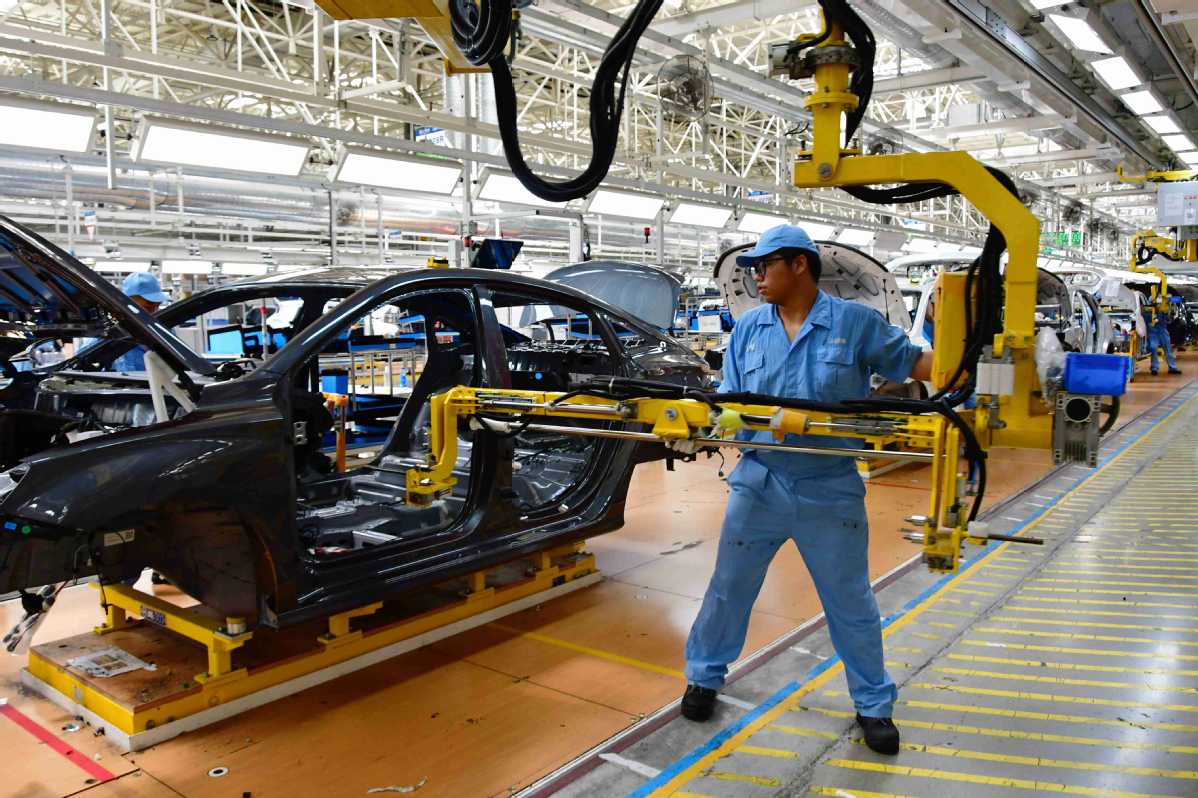
An employee works on an electric vehicle assembly line in Ningde, Fujian province, in August. [Photo/Xinhua]
The number of NEV-related problems has increased, according to a J.D. Power study released on Thursday.
There are 173 problems per 100 NEV vehicles this year, an increase of 22 problems compared with 2022, according to the J.D. Power 2023 China New Energy Vehicle Initial Quality Study.
“A shorter R&D period and adaptation of complex technological configuration are contributing to this decline,” said Elvis Yang, general manager of auto product practice at J.D. Power China.
“Automakers need to pay more attention to user experience and quality management as they accelerate the launching of new models,” said Yang.
The study, released on Thursday, is based on responses from 7,191 vehicle owners who purchased their vehicles between July 2022 and January 2023.
A total of 76 models from 36 different brands are involved in the study, which was fielded from January through March 2023 in 81 cities across China.
The study, first published in 2019, measures new-vehicle quality by examining problems experienced by NEV owners in China within the first two to six months of ownership.
Interior smell and excessive road noise are most-often-cited problems in this year’s study. They have been among the top three problems for five years in a row.
The newly launched NEV models have 184 problems per 100 vehicles, 15 more than that of carry-over models.
The quality of all-new models is inferior to carry-over models in almost all categories measured in the study, especially in driving experience, according to the J.D. Power study.
Additionally, the number of quality problems in carry-over models has also increased year-over-year, an increase of 20 problems per 100 vehicles from 2022.
Models from Chinese NEV brands ranging from Leapmotor to Neta have performed well in almost all segments in this year’s study except the mid-size SUV segment, in which the winner is Volkswagen ID.4 X.
